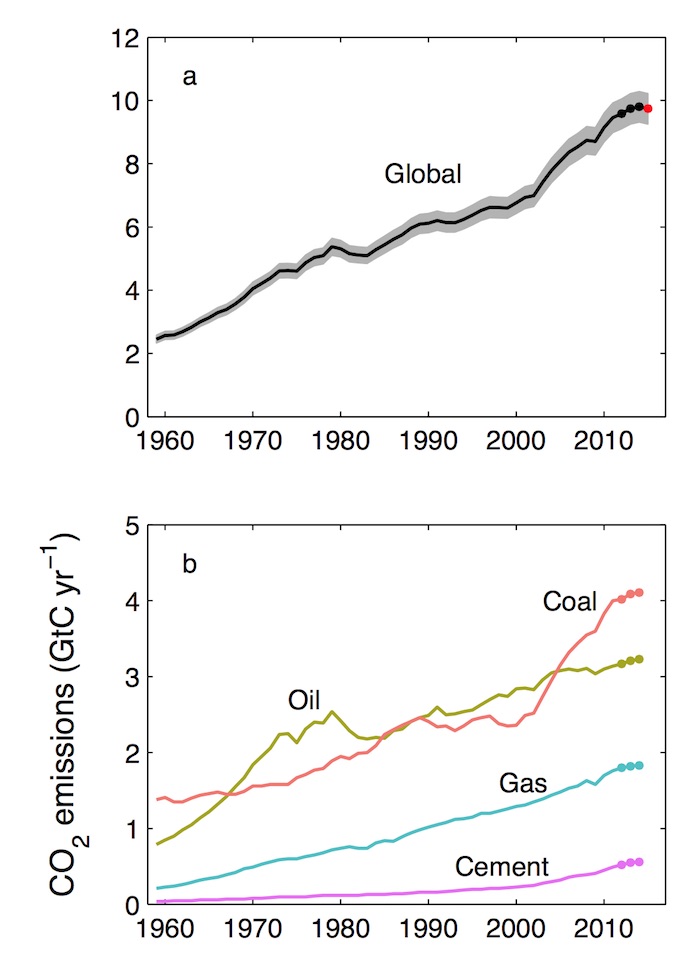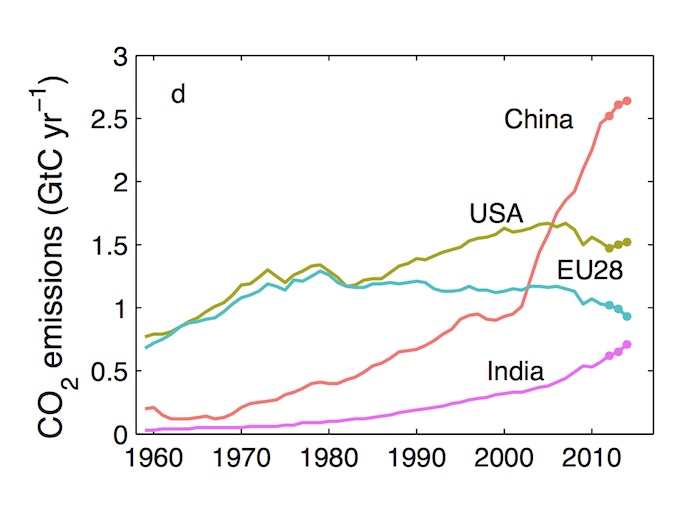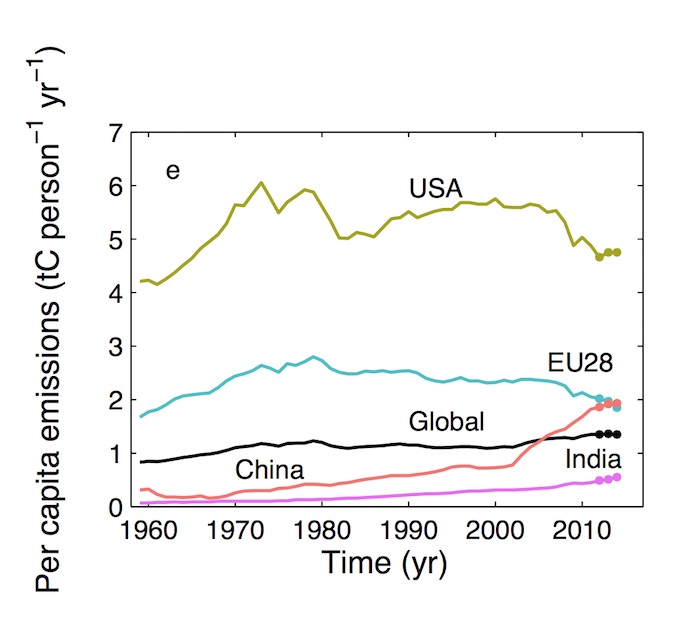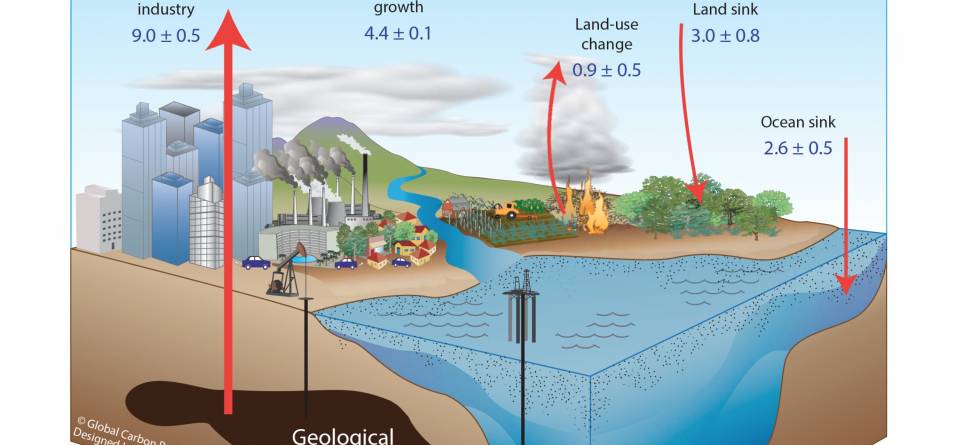The Global Carbon Budget also projects a decline in emissions of –0.6% [–1.6% to +0.5%] in 2015, though unclear if this is a trend that will continue.

– When more or less half of the reduced increase in CO2 emissions is mainly caused by China’s decrease in coal use, it shows where the emphasis in the negotiations should be. This years budget shows that one single country can have a great impact on emissions. The large emission countries are key to decreasing emissions, Are Olsen, associate professor at the UiB and Bjerknes Centre says.
See the Global Carbon Budget 2014 here

Key points in the Global Carbon Budget 2014
- China’s decreased coal use largely accounts for the break in global emissions growth, coupled with slower global growth in petroleum and faster growth in renewables.
- The European Union is the region with the strongest decline in emissions, declining at an average of 2.4% per year in the past decade (2005-2014). Although the outsourcing of emissions to emerging economies played a substantive role in the earlier reductions, emissions transfers into the EU have declined since 2007.
- Emissions in the United States declined by 1.4% per year in the past decade (2005-2014), a decline that is projected to continue through 2015.
- India’s emissions of 2.4 billion tonnes of CO2 today match those of China in 1990, but per-capita emissions continue to be well below the global average at 2.0 tCO2. India’s challenge, however, is the need to provide 1.3 billion people with greater access to energy. Many other emerging economies and lower-income countries are in a similar position.

- The decline in emissions in the EU of 210 MtCO2 in 2014 was the same size as the increase in emissions in India of 205 MtCO2. If present trends persist, India’s emissions will match those of the EU within 2-3 years.
- Global emissions from fossil fuels and industry were 35.9 GtCO2 in 2014 and are expected to decrease to 35.7 GtCO2 in 2015, with world-average emissions per person at 4.9 tCO2 (see further statistics in Table 1 below).
- Renewables may play an increasingly important role in helping to reduce fossil fuel emissions. 2014 broke global records in installed capacity for both wind (50 GW) and solar PV (40 GW) power (and both are reaching price parity with fossil fuels in many markets).
- Emissions from deforestation and other land-use change were estimated at 4.0 GtCO2 in 2014, with large uncertainty. [Note that work by ESSD co-author GR van der Werf based on burned areas detected by satellite shows enhanced land-use change emissions in 2015 due mainly to fires in Indonesia. Details available on http://www.globalfiredata.org/updates.html].
Likely not yet an emission peak
The scientists in the Global Carbon Project see this year's break with the trend of 2-3% growth as temporarily. Reduced growth in the coming five year will also depend on ”the economic stability in China together with the implementation of air quality measures and climate policies”, quoting the Global Carbon Budget. At the same time, renewable energy are rising very rapidly, both in China and worldwide.
India and other growing economies with a large population and growing demand for energy access, is another area of unknown factors.
– If the growing economies bases their growing energy demands on fossil fuels, it will be hard to reach decreasing emissions. This is a reason why it is important to focus on renewable energy, Are Olsen says.
He is contributing to the Global Carbon Budget together with colleagues at the Bjerknes Centre: Siv Kari Lauvset, Jörg Schwinger (both Uni Research) and Benjamin Pfeil (UiB)

